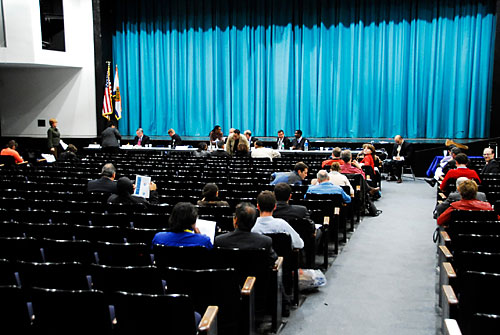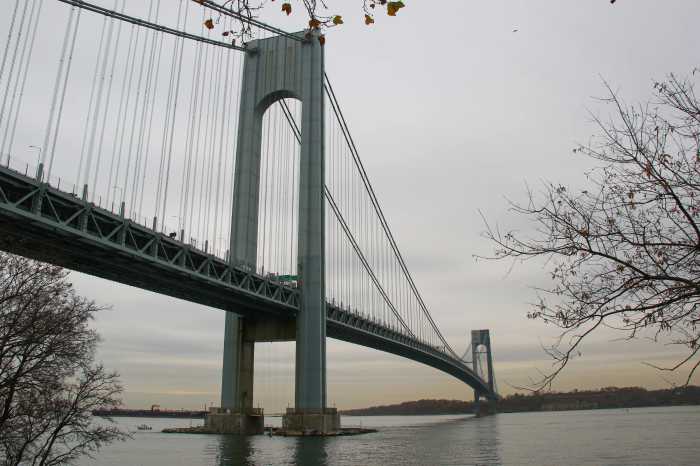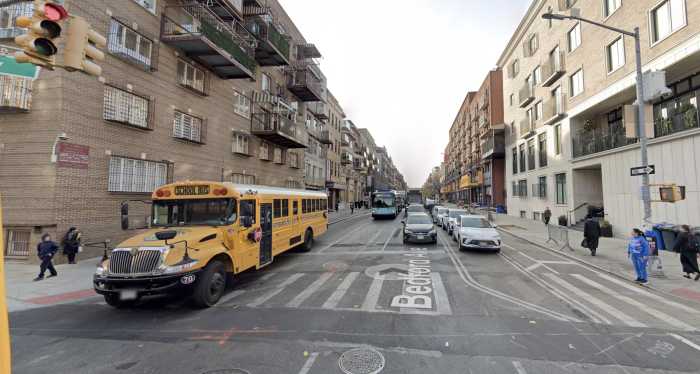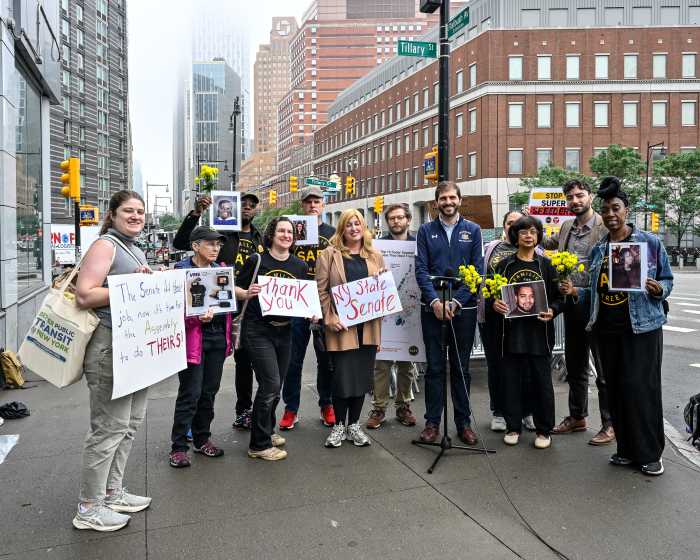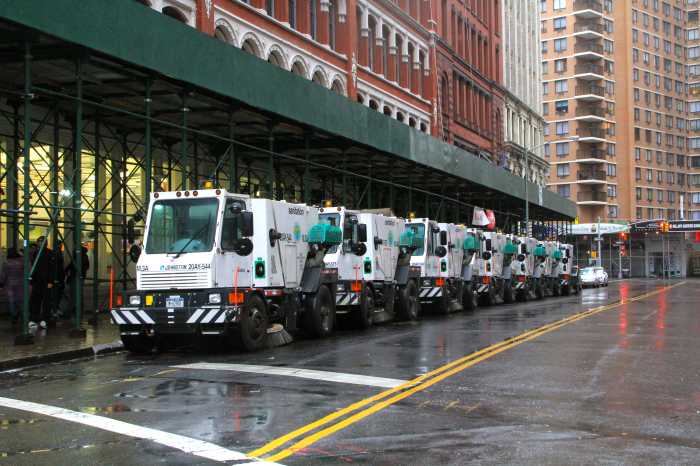Congestion pricing was the hottest public issue when Mayor Bloomberg announced the traffic-reducing initiative this summer, but only about 100 people showed up for a public hearing on the issue in Downtown Brooklyn last week — and 20 of those were elected officials.
The state’s Congestion Mitigation Commission — the panel created by Albany in July to decide what to do with Mayor Bloomberg’s hot-potato — invited the public to praise, or put down, the mayor’s plan at City Tech’s Klitgord Auditorium on Thursday, but the 800-seat auditorium was practically empty.
Though the crowd was small, it was polarized, with one side in favor of charging drivers $8 to get into Manhattan’s central business district on weekdays, saying it would reduce traffic.
Opponents, meanwhile, said the plan amounts to an unfair tax on drivers.
Assemblyman Nick Perry (D–East Flatbush) said the commission was “stacked with proponents of congestion pricing,” adding that the plan was “a wanton exploitation of tax-paying New York City drivers.”
Perry referred to the plan as the BAD tax, or the Bloomberg Anti-Driving tax.
Assemblyman Hakeem Jeffries (D–Fort Greene) was also critical of congestion pricing.
“It’s unfair and unjust that those who make the least should pay the most and those who make the most should pay the least,” Jeffries said.
By contrast, the Downtown Brooklyn Partnership, a quasi-public agency charged with stimulating development in Brooklyn’s main business district, supports congestion pricing.
“As Brooklyn and Manhattan are linked, so are the issues surrounding transportation, the environment and our economy,” said Doug Giuliano, a project manager for the partnership’s policy and strategic planning department.
“This initiative will reduce traffic and generate sustainable funding for the city’s transit network. It also ensures that New York remains economically competitive, while improving quality of life and the environmental health of the city’s residents.”
Such health concerns are particularly strong in neighborhoods like Sunset Park and Bay Ridge, both of which are in the path of the smokey Gowanus Expressway.
“Congestion pricing would not only help get cars off the road, leading to a reduction of pollution, but will reduce the upper respiratory diseases that have settled in the lungs of my mom, cousins, aunts, uncles, abuelas, abuelos and even my little brother,” said 16-year-old Joaquin Brito, a youth justice organizer with UPROSE, a Sunset Park–based activist group.
Brito scoffed at politicians who claimed congestion pricing would be an unfair economic burden on drivers.
“If you can afford to pay $8 for a venti latte and a cookie from Starbucks every day, then you can afford congestion pricing,” he said.
Some politicians used the public hearing to suggest changes. Councilman Lew Fidler (D–Canarsie) presented his nine-point plan — he calls it the “Nine Carat Stone” — which includes a .33-percent regional payroll tax to support mass transit initiatives throughout the tri-state area. Fidler also wants to build a subway tunnel to Staten Island (long a dream of transit advocates) and a cross-Harbor freight tunnel to further reduce traffic.
He also wants government initiatives to bring about hydrogen-powered cars now, “not in 2017.”
“We can’t afford to wait,” he said.


